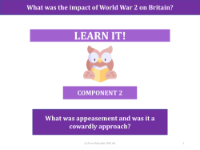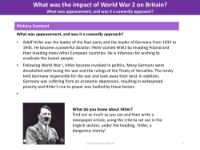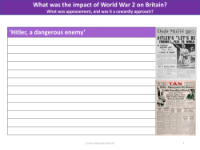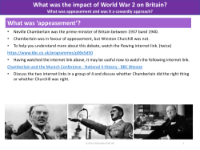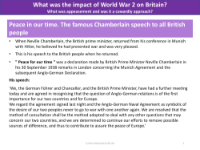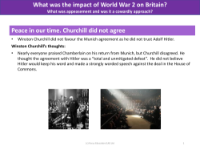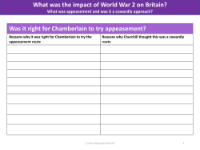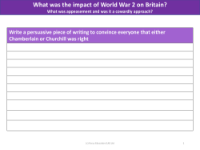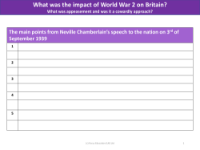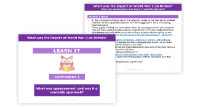What was appeasement, and was it a cowardly approach? - Teacher notes
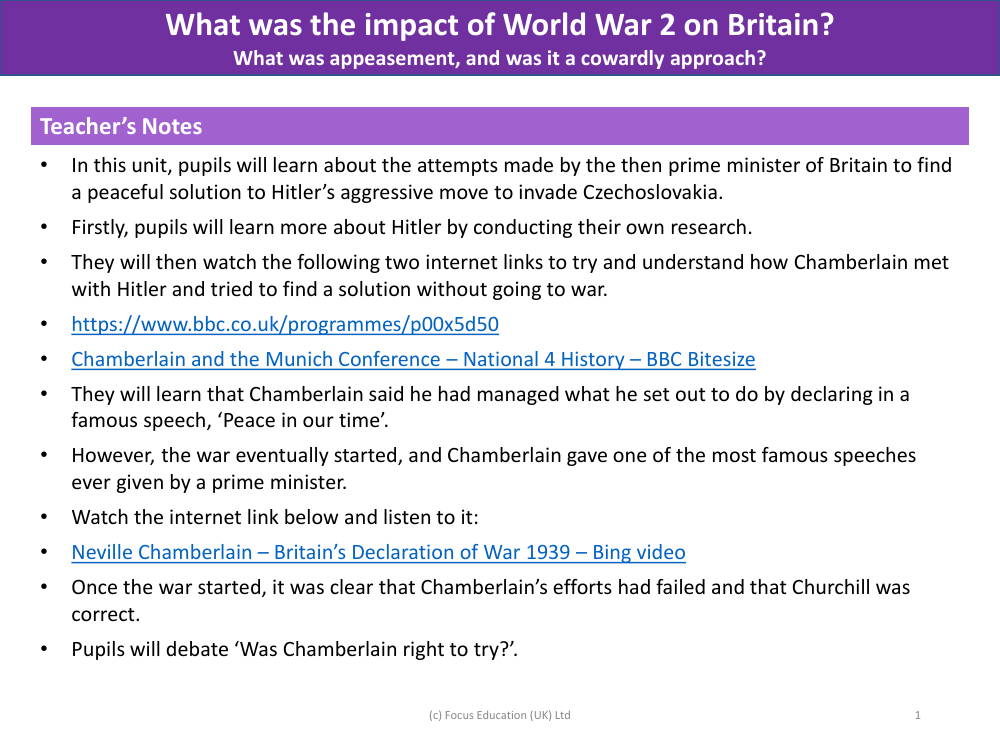
History Resource Description
Appeasement was a diplomatic policy of making political or material concessions to an aggressive power in order to avoid conflict. In the context of pre-World War II, it refers to the efforts of the British Prime Minister, Neville Chamberlain, to prevent war by accommodating the territorial ambitions of Adolf Hitler. This approach involved allowing Hitler to annex parts of Czechoslovakia, under the belief that satisfying his demands would maintain peace in Europe. Chamberlain's pursuit of appeasement culminated in the Munich Conference, after which he famously declared he had achieved "Peace in our time." Despite his intentions, the policy of appeasement is often debated, with some viewing it as a necessary tactic to avoid war and buy time for military preparation, while others criticise it as a cowardly surrender to the threats of a dictator.
The impact of appeasement and its perceived cowardice is a contentious issue that continues to provoke debate in historical and educational discussions. In the unit, pupils will explore the actions and decisions of Chamberlain, including his meetings with Hitler and his public declarations. Through research and by watching educational resources, they will gain a deeper understanding of the events leading up to World War II. The eventual failure of appeasement is highlighted by the outbreak of war and Chamberlain's solemn declaration of Britain's entry into the conflict. Students will engage in debates to consider whether Chamberlain's approach was justified or if it was an act of cowardice, weighing the complex factors that influenced the policy at the time. The unit aims to encourage critical thinking about the difficult choices faced by leaders in times of international crisis.
